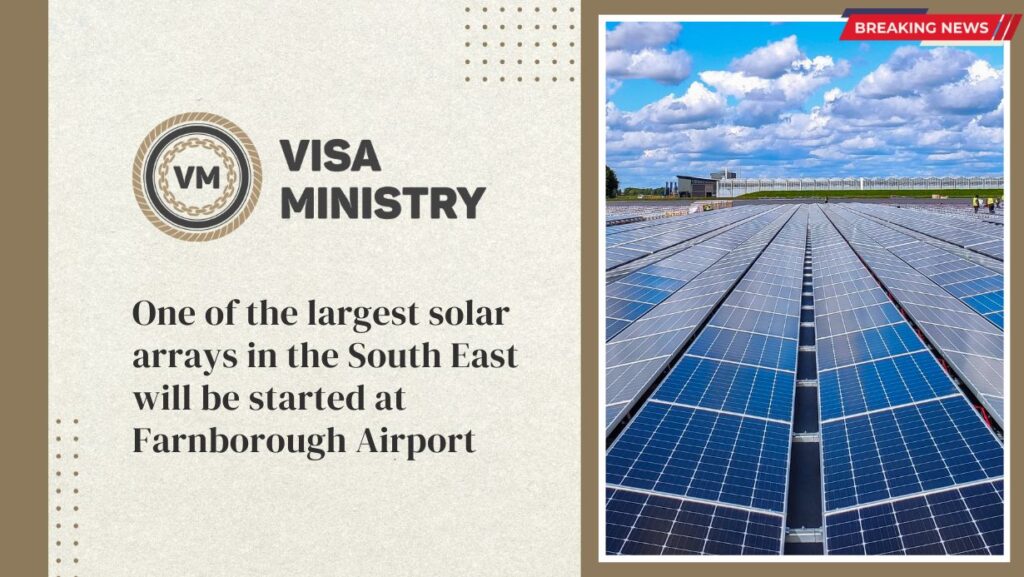The South East’s largest light-weight solar array, to be completed at Farnborough Airport, the center of British aviation and Europe’s top airport for premium air travel connectivity, will allow the airport to produce 25% of its own power.
The cutting-edge terminal building, the airport’s control tower, the ground support facility building, and the award-winning 169-room Aviator Hampshire hotel will all have solar panels installed as part of the creative and comprehensive designs. Additionally, the installation will make it possible for the Airport’s operating fleet of electric vehicles to be charged using electricity produced on-site.
The new solar installation will enable us to reduce our controllable emissions as set out in our Net Zero Roadmap, in which we have committed to being Net Zero by 2030 or so, according to Simon Geere, CEO of Farnborough Airport, “In our efforts to be a sustainability showcase for airports around the world, we are always looking for new ways to supply and create sustainable energy sources.” The project also complies with a recent government law that favors rooftop solar over solar on agricultural property and encourages more rooftop solar.
The installation will be completed by the solar power producing company Solivus, with work set to begin in 2023. In terms of new, innovative light-weight solar installations, Solivus is in the forefront. Farnborough seized this decarbonization opportunity because traditional solar is too heavy for 40% of major structures like airplane hangars. “At Solivus, we are on a mission to simplify the decarbonization of the built environment, so we are proud to be working alongside a business who have likeminded goals,” said the company’s chief executive officer Jo Parker Swift.
Plans for the solar installation at the Airport come after a string of noteworthy achievements in recent years. The first business aviation airport to attain Carbon Neutral 3+ designation was Farnborough Airport in 2018. It started providing Sustainable Aviation Fuel (SAF) to all clients in 2021, and in 2022, ahead of the Farnborough International Airshow, it became the first airport in the world to do so for the same price as regular Jet A1 fuel for a two-week trial period. Farnborough Airport pledged to become Net Zero for emissions it can control by 2030 or earlier in 2022, setting one of the aviation industry’s most challenging goals. The Airport Carbon Accreditation (ACA) initiative granted Farnborough Airport Level 4+ certification earlier this year, the highest level of carbon accreditation.
Source- Travel daily

